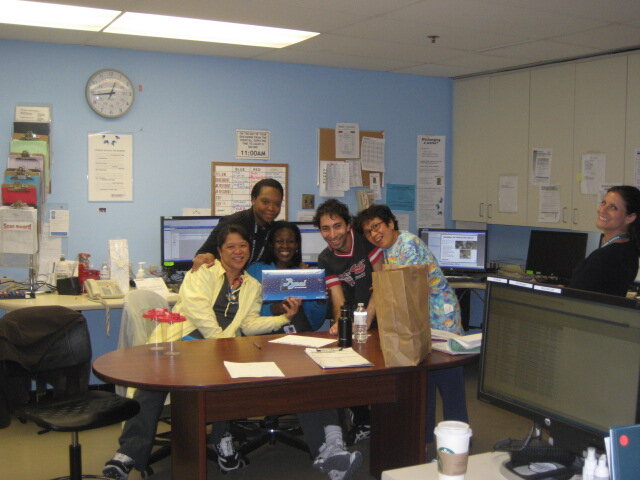After seven years with a j-pouch, I can’t complain
“Do you feel safe coming in to work, Rasheed?” my manager asked me.
It was mid-March, 2020, and the severity of a new strain of coronavirus was starting to weigh on countries around the world. There were grumblings of a state of emergency, a lockdown, a ban on doing most things. But I really enjoyed my walk to work that day. The usually busy main road I strode each day between my apartment and the park where I worked was quiet.
“I mean… I don’t have a problem with coming into the office. It’s actually kinda fun to see the city so quiet, but I also have no problem working from home. I can do everything I do here on my laptop,” I replied.
A group of my colleagues and I discussed when we should close the office, and how we’d manage working from home and cancelling events and all the things you never prepare for in an office.
I honestly thought everyone was making a big deal out of a flu. When SARS was a concern in Toronto, I rode packed subways, maskless, without any real fear. I figured this COVID-19 thing was more of the same. Why shut everything down? Why postpone the Olympics? How dare you ruin my summer by not staging Euro 2020? People have had the flu before, right?
But everything was shut down, and I’ll be the first person to say it now, it was the right move. The only move, really. I feel foolish for taking COVID-19 so lightly, not because I put anyone in danger through my actions – I’ve followed all the lockdown and mask-wearing orders – but because I should have taken anything health-related more seriously.
My complacency comes in part from the almost luxurious function of my j-pouch. The seven or so bathroom trips a day I now take are rote and easy to manage. It’s my normal now, and aside from that frequency of bathroom usage, I feel as though I have a pretty normal life. Being able to say that after years of struggling with ulcerative colitis indeed feels like a luxury.
I can eat most things, drink most things, walk, run, ride my bike, enjoy listening to music, work, go on trips (within COVID guidelines), and look to the future without wondering if I’m ever going to feel like myself again. I can’t complain about my j-pouch. I love it. I’m incredibly grateful to have it. But when I lose that sense of gratitude, as I often do, I do things like underestimate a pandemic.
I’ve changed my attitude towards COVID-19, of course. It’s hard to imagine anyone who took things lightly around this time last year wouldn’t have changed their mind after seeing the red lines of mask straps indented on the exhausted faces of doctors and nurses. After seeing refrigerated trailers used to store the bodies of COVID victims. After seeing drone footage of the rows of rectangular holes dug out in a mass grave in Brazil, awaiting more bodies.
~ ~ ~
I think back to my first operation in May 2013. That one didn’t go so well. I ended up staying in hospital for nearly a month after the surgery to remove my colitis-ravaged colon. I remember how wonderful the nurses in Toronto’s Mount Sinai Hospital were. How they would smile when they took my vitals at the start of their shift. How they encouraged me when I took walks around the floor with my IV pole. How they cleaned and packed and dressed the wound I came out of that first surgery with. And how grateful they were when my dad brought them a box of Baci chocolates on the day I was finally released.
I cannot thank them enough for all that they, and my doctors, did for me. And I cannot imagine how hard their already gruelling jobs are now. Whenever COVID cases spike and people start complaining about closures and stay-at-home orders, I think of my nurses, doctors, and all the staff who work to keep hospitals running. I wish those stringent measures were put in place sooner because I want to do what I can to make their lives easier, especially when all I’m being asked to do is stay at home for a bit.
Over the last year, we’ve all been asked to be patient. To follow restrictions and wait things out until cases come down and vaccines are widely distributed. That’s a fair ask, even if that means our lives will be disrupted for 2-3 years, maybe longer. For people living with chronic illness, being asked to be patient is nothing new. You have to wait for appointments, wait for prescriptions, wait for the prescriptions to start working, wait for your body to heal. That said, it’s no fun to wait.
But perhaps all the time I’ve spent waiting on my body has made me more adaptable to life in a pandemic, and more capable of showing patience even when it’s frustrating to do so.
There’s plenty in life that makes me sad (winter) and angry (people in general), and there are a myriad of things I want to change in my life but can’t because of current circumstances. But my j-pouch is a constant reminder that I really shouldn’t complain, because I still have a lot of good going for me.
Past Pouchiversary posts can be found here.

